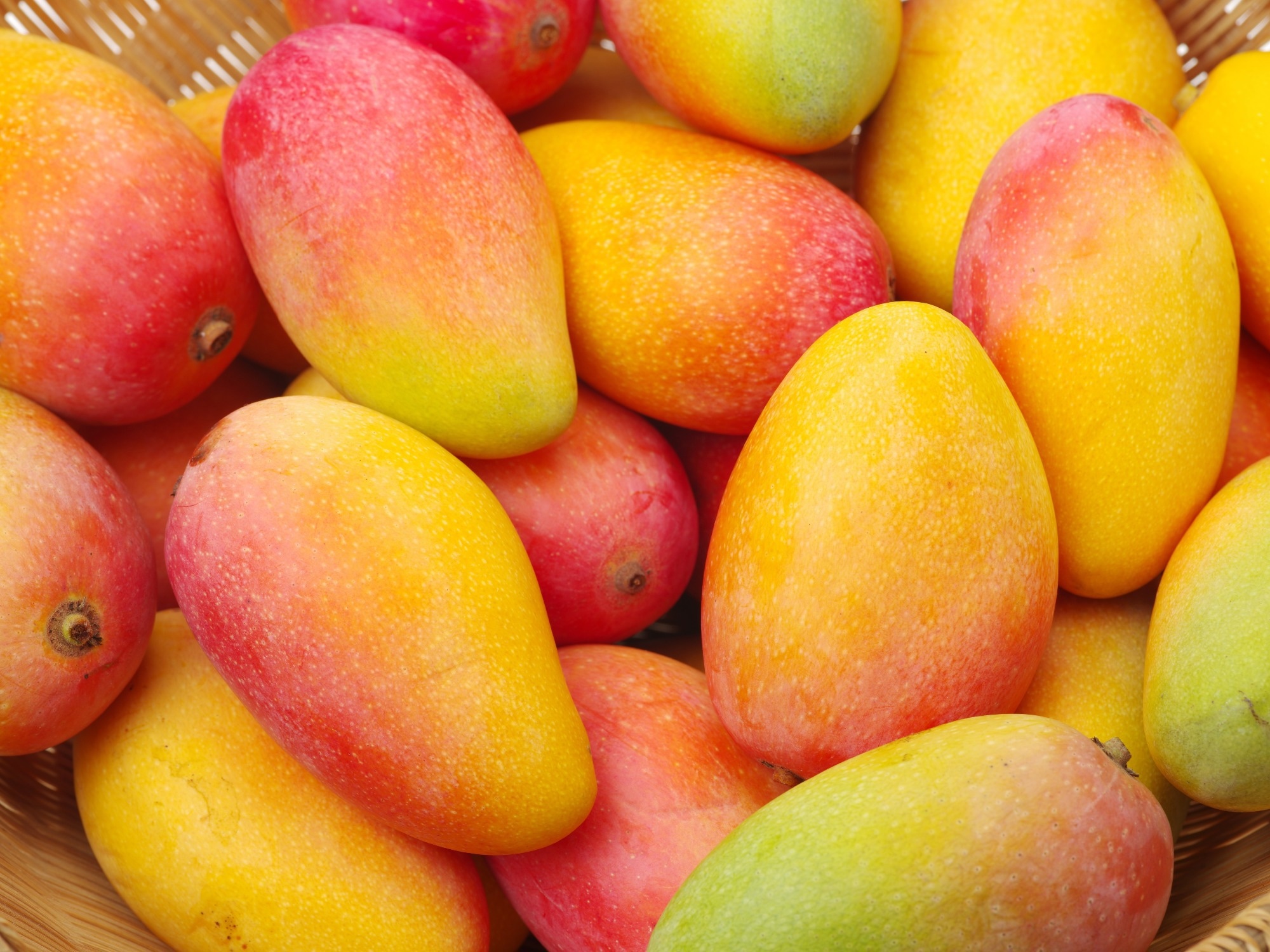In a recent study published in the journal Food Science and Nutrition, researchers at San Diego State University investigated how consuming fresh mango affects gut health and microbiome.
Diet has a significant influence on gut microbial diversity and composition. Intake of fish and raw fruits has been shown to increase microbial diversity, while sugary drinks and fried foods can reduce diversity. Individual foods such as fruits can alter the abundance of specific microbial species. Nutrition, phytochemicals, and fiber are abundant in mangoes, promoting good health. The fiber content may also positively affect the gut microbiome.
Study: The effects of fresh mango consumption on gut health and microbiome – Randomized controlled trial. Image Credit: JIANG HONGYAN / Shutterstock
About the study
In the present study, researchers assessed the effects of mango intake on the gut microbiome, bowel movement habits, and permeability proteins. Eligible subjects were aged 18-55 with a body mass index (BMI) of ≥ 26 kg/m2. Individuals were excluded if they were pregnant, smokers, users of antibiotics, prebiotics, and probiotics, or had inflammatory/metabolic diseases.
Following a crossover design, the study was conducted over an intervention period of 12 weeks with at least four weeks of washout period. Participants were randomized to the mango or low-fat cookie group. Subjects received 100 kcal of fresh mangoes or low-fat cookies, both provided as pre-packaged items and consumed one pack daily for 12 weeks.
Stool samples were collected at baseline and the fourth and twelfth weeks of intervention. Deoxyribonucleic acid (DNA) was isolated and quantified, and 16S ribosomal ribonucleic acid (rRNA) sequencing was performed. In addition, fasting blood specimens were obtained. Zonula occludens 1 (ZO-1), occludin (OCLN), and claudin 2 (CLDN2) were measured using enzyme-linked immunosorbent assay (ELISA) kits.
Bowel movement habits for seven days were examined using a questionnaire. Alpha diversity measures were evaluated using the Friedman rank sum and Wilcoxon signed-rank tests. Beta diversity was assessed using the Bray-Curtis index and visualized using principal coordinates (PCoA) and network analyses.
Findings
The study sample comprised 27 subjects (11 females and 16 males) aged 26 on average. The mean weight and BMI of participants in the mango group were 94.2 kg and 31.6 kg/m2; the average weight and BMI of those in the low-fat cookie group were 94.8 kg and 31.9 kg/m2. Compared to the mango intervention, the low-fat cookie intervention had a higher Chao1 index at weeks 4 and 12 and abundance-based coverage estimator (ACE) index at week 12.
Nonetheless, the mango intervention achieved higher Simpson and Shannon indices at week 4. Significant differences were observed in the Bray-Curtis index between interventions at week 12. The PCoA plot revealed no separation between groups except in the twelfth week when mango intervention samples dispersed more along axis 2.
The network analysis showed that samples clustered mostly by subjects rather than interventions. Firmicutes, Proteobacterium, and Bacteroidetes phyla were the most abundant in both interventions. The Bacteroidetes-to-Firmicutes ratio was not significantly different between groups. Both interventions caused unique changes in species at week 12 relative to baseline.
The mango intervention increased the abundance of Corynebacterium pyruviciproducens, Actinomyces naturae, Treponema refringens, Mogibacterium timidum, Salinococcus luteus, and Prevotella maculosa but decreased P. copri. On the other hand, the low-fat cookie intervention caused an increase in the abundance of Desulfovibrio butyratiphilus and Cyanobacterium aponinum but reduced that of Alloscardia omnicolens.
CLDN2, OCLN, and ZO-1 levels did not significantly differ between interventions or time points. The frequencies of bowel movements were not significantly different between interventions. However, stool quantity slightly increased in the mango group at later points relative to baseline but not in the low-fat cookie group. No significant differences were observed within/between interventions in bowel movement regarding consistency, constipation, pain, or strain.
Conclusions
The researchers evaluated the effects of mango intake on gut health and microbiome over 12 weeks. The mango intervention reduced Alpha-diversity measures but increased species evenness compared to the low-fat cookie group. This meant that consuming mangos led to fewer members of species but caused a more even distribution of abundance across species than consuming cookies.
Together, the findings indicate that mango consumption increased gut microbiome diversity after four weeks, with the highest dissimilarities between intervention arms at week 12. Future studies should validate the results in large samples, including individuals with different BMIs, and assess the effects of varying amounts of mango.
